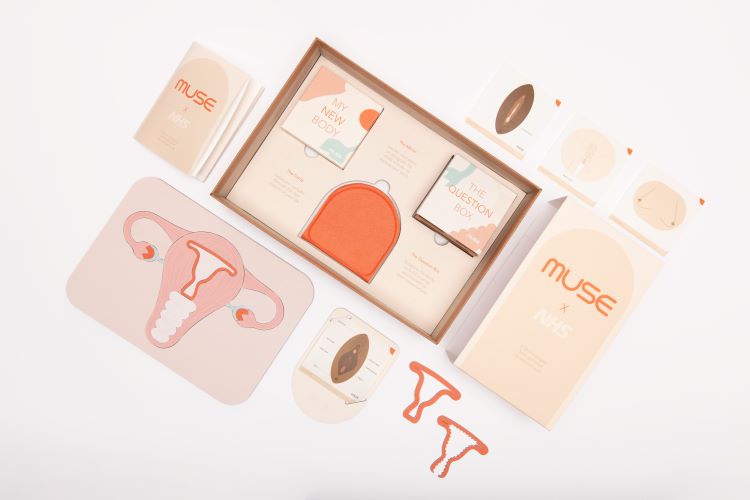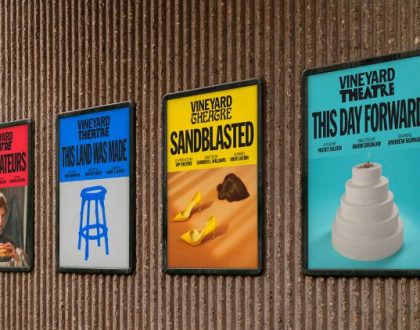Meet the graduates: Royal College of Art’s Célia Marchessaux

by IBRAHIM
Meet the graduates: Royal College of Art’s Célia Marchessaux

Célia Marchessaux is a BA Design Products graduate from Royal College of Art. Her final project is Muse.
Design Week: Can you briefly explain your final project?
Célia Marchessaux: Muse is a collection of tools that addresses different challenges within a woman’s journey through life. The narrative navigates from puberty to womanhood and targets two different points: – body awareness and sex education, and gynaecological appointments.
Muse aims to answer real world challenges in a society that shies away from sex education and surrounds the topics of body and sexuality with shame. It is meant to empower girls to face their bodies and break their silence in order to shape a new generation that feels differently, challenges oppressive perspectives and encourages a healthier relationship with bodies and sexuality.
The first kit contains educational objects and cards that address ‘taboo’ topics to support young girls to gradually become informed and empowered women. It is composed of a cardholder mirror, question box, female reproductive system puzzle, and four chapters of educational cards.
The second kit is tackling women’s healthcare and contains a gown and an interactive stand. The gown brings back dignity, comfort, intimacy and the notion of consent by empowering women to only show the parts that need to be seen during a gynaecological appointment. The one size gown embraces the large spectrum of women’s body shapes and creates windows to access the breast, the belly, and in between the legs. The stand aims to be placed in the gynaecological waiting room and familiarizes patients with gynaecological tools.
DW: What was the most challenging aspect of the project?
CM: Reaching out to the first expert. However, the more people I got on board, the more support I received, and the more confidence I gained. Tacking the territory of body awareness and sex education can still be difficult, even in 2022. I am forever grateful for the support I received from the school where I organised a workshop, for offering me the rare and heart-warming opportunity to introduce Muse to students in Year 9.
DW: Where do you see your design career in five years?
CM: During my masters at the RCA, I learnt a lot about myself, the designer I am, and the one I want to grow into. I believe in the social impact of design. Being a designer certainly involves a heavy responsibility toward our planet and our society.
For this reason, I strongly believe designers have to reinvent themselves everyday to grow with rapidly evolving societies and circumstances, and collaborate with others in their own journey of growth. It is only by joining perspectives and skills that we will make progress in overcoming real world challenges through precise interventions that impact ecosystems. Muse is part of this journey.
In the upcoming years, I would like to push Muse as much as I can, so it is widely used. I also want to work on new projects that embody my values and principles. I see myself in five years in a design consultancy, working with a multidisciplinary team, aiming to overcome new challenges in order to create global impact.
You can find our guide to 2022 graduate design shows here.
Recommended Posts

NB invites local designers centre stage for Vineyard Theatre rebrand
February 24, 2023

“AI revolution” will change way design studios look within three years
February 24, 2023

Rbl rebrands ZSL with ecosystem-inspired identity
February 23, 2023

